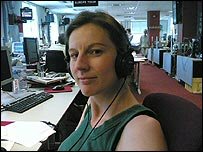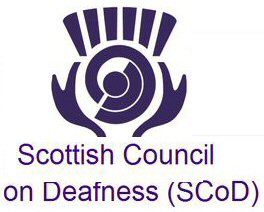Kate Wright was just 29 when she was told she had the hearing of an 85-year-old.

A bout of meningitis in childhood had affected her hearing.
But Kate only found this out as an adult, which explained why she had found social situations so tiring and difficult as she was growing up.
While her hearing loss was due to illness, Kate is backing warnings from the charity Deafness Research UK that young people need to be aware of the potential dangers of too much loud noise, whether that’s from clubs, gigs or iPods and MP3 players.
Now 32, Kate from Greenwich, London, says her teenage years in particular were difficult.
“I used to get so exhausted after a night out with a few friends and now I understand why I had to go home two hours earlier than everyone else – at the time they thought I was a bit antisocial.
“I understand why I used to come home and just sleep after school when I was younger. My mother just thought I was lazy and wanted to avoid the household chores.
“I also understand why people often say I’m a bit ‘intense’ – because I tended to stare at people’s face when they spoke. It also helps to explain why I used to get so many appalling headaches.
“All these things make sense now I know that I have a significant hearing loss.
Kate understood what was said to her partly through hearing, but also through lip-reading, a skill she developed without realising it as a child.
She added: “It took months to recover from meningitis and by the time I was better, I was lip-reading fluently and by then I couldn’t remember it ever having been any different.”
“It is simply hard work for my brain to piece together words, because I’m missing a bit of the frequency where the consonants are. I couldn’t hear sounds like shh.”
It was Kate’s career that eventually led her to seek help.
Then a producer for the BBC, she was working in busy studios with lots of noise – and often went home with severe headaches.
When she saw a doctor, she was told she had hearing loss, and that she would need to be fitted with hearing aids.
“I found this quite difficult at first. I felt that the aids would make me really stand out – especially as I am only a young woman.”
She has got used to the aids – which her boyfriend calls the “Babel fish”. And she is getting used to hearing all the sounds that have been silenced for over 20 years.
“I’m noticing some really good things I can hear – like cars taking a ‘short cut’ the wrong way up my one-way street – before they nearly run me over.
“Music suddenly sounds 3D and I can hear what my boyfriend is saying if he’s speaking to me in the next room.
“There are fewer exasperated sighs from people having to repeat themselves too, which is good.”
But Kate, who is now a journalism lecturer at Roehampton University, said it was hard walking down the street, as she can hear everything people are saying – rather than only being able to hear what someone addressing her directly said.
“I keep looking up to see who is speaking to me, only to realise it’s someone a few paces behind. So I find that a little disorientating.”
She added: “Very noisy places like pubs and parties will take some time to get used to.
“On the few occasions that I have worn my aids at parties I have fallen asleep immediately afterwards because I’ve been so tired.”
Kate said she was happy she could hear again. But she said young people should look after their hearing.
“Watch yourself. If there’s ringing in your ears after you’ve been listening to music, think about it you want to be wearing a double hearing aid.
Original Content Read Here :- BBC



